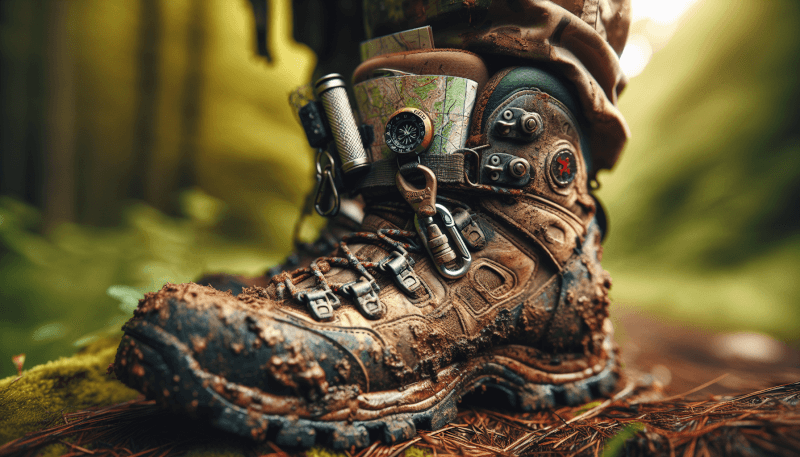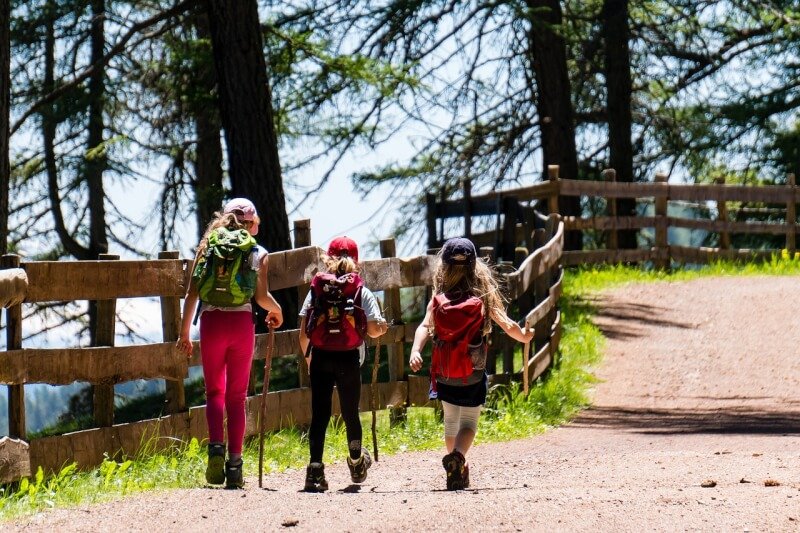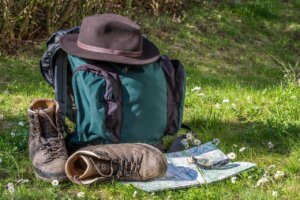If you’re a beginner camper looking to hit the trails, it’s important to be prepared and knowledgeable about hiking safely and responsibly. In this article, we’ll provide you with valuable tips and advice to ensure a successful and enjoyable hiking experience. From proper gear and clothing to trail etiquette and emergency preparedness, this guide will equip you with the essential knowledge to confidently embark on your outdoor adventures. So grab your backpack, put on your hiking boots, and let’s get started!
Choosing the Right Trail
When it comes to hiking, the first and most important step is choosing the right trail for your level of experience and fitness. Consider the difficulty level of the trail before you embark on your adventure. If you are a beginner, it is recommended to start with an easy or moderate trail. This will allow you to get used to the demands of hiking and build up your stamina gradually.
Do some research on the trail you are planning to hike. Look for information about the trail’s length, elevation gain, and terrain. This will give you a better understanding of what to expect and help you prepare accordingly. You can find trail descriptions and reviews online, as well as in guidebooks and hiking forums. Reading about other hikers’ experiences can give you valuable insights and tips.
Another important factor to consider is the weather forecast. Check the weather conditions for the day of your hike and the days leading up to it. Keep in mind that weather conditions can change quickly, especially in mountainous areas. Dressing appropriately for the weather can make a huge difference in your comfort and safety on the trail.
Preparing the Essentials
Once you have chosen the right trail, it’s time to prepare the essentials for your hike. This includes wearing appropriate clothing and footwear. Opt for moisture-wicking and breathable materials that will keep you dry and comfortable. Layering your clothing is also a good idea, as it allows you to adjust to changing temperatures throughout the day. Don’t forget to wear sturdy and comfortable hiking boots or shoes that provide good traction and support.
Pack essential gear to ensure your safety and comfort on the trail. This includes a backpack, a headlamp or flashlight, a multi-tool, a whistle, and a small first aid kit. It’s also a good idea to bring a waterproof jacket, a hat, sunglasses, sunscreen, insect repellent, and a trail map. Consider bringing trekking poles if you anticipate encountering steep or challenging terrain.
Carrying enough water and food is crucial for staying hydrated and energized during your hike. On average, it’s recommended to carry at least 2 liters of water per person for a day hike. Pack lightweight and nutritious snacks such as trail mix, energy bars, and fruits. Don’t forget to pack a lunch if you will be spending the whole day on the trail.
Navigating and Orientation
Having the ability to navigate and orient yourself on the trail is essential for a safe and enjoyable hiking experience. Bring a map and compass with you, even if you are planning to rely on GPS devices. Familiarize yourself with the map and study the trail before you start hiking. This will help you understand the route, identify landmarks, and anticipate any challenges along the way.
Learning to use GPS devices can be a valuable tool for navigation, especially in unfamiliar or complex trail systems. Practice using GPS devices before your hike and make sure to have a backup plan in case the device fails or loses signal. Remember that technology can be unreliable, so it’s always a good idea to have a map and compass as a backup.
To make navigation even easier, consider marking key points on the trail. This can be done by using trail markers, cairns, or simply making mental notes of prominent landmarks. Marking key points will not only help you stay on track but also allow you to retrace your steps if needed.
Understanding Trail Etiquette
Respecting trail etiquette is not only important for your safety but also for the enjoyment of other hikers and the preservation of the natural environment. Yield to other hikers on the trail by giving them the right of way. This is particularly important when encountering uphill hikers or larger groups. Step aside and allow them to pass safely.
Dispose of trash properly by packing out everything you bring with you. This includes food wrappers, water bottles, and any other waste generated during your hike. Do not leave any trash behind, as it can harm wildlife and disrupt the natural ecosystem of the trail.
Respect wildlife and nature by observing from a safe distance and not disturbing or feeding animals. Keep in mind that you are a visitor in their habitat, and it is important to minimize your impact. Avoid picking flowers, damaging vegetation, or leaving any trace of your presence. Leave the trail as you found it, allowing future hikers to enjoy its beauty as well.
Hiking Safety
Hiking safety should always be a priority, no matter your level of experience. Before you head out on the trail, make sure to tell someone your plans. Provide them with details about the trail you’ll be hiking, the estimated duration of your hike, and when they should expect you back. This information can be crucial in case you encounter any emergencies.
Start early in the day and pace yourself. Hiking in the morning not only allows you to enjoy the cooler temperatures but also gives you enough time to complete your hike before it gets dark. Take breaks as needed to rest, hydrate, and maintain your energy levels. Listen to your body and don’t push yourself beyond your limits.
Staying hydrated is essential during a hike, so make sure to drink plenty of water. Take regular sips and avoid waiting until you are thirsty to drink. Dehydration can lead to fatigue, muscle cramps, and even more serious health issues. Keep in mind that on hot or strenuous hikes, you might need to drink more than just water to replenish electrolytes.
Emergency Preparedness
Being prepared for emergencies is crucial when hiking in the great outdoors. Carrying a first aid kit is a must, as it can help you handle minor injuries and provide immediate care until professional help is available. Make sure your first aid kit includes bandages, adhesive tape, pain relievers, antiseptic wipes, and any personal medications you might need.
Always be prepared for changes in weather, as conditions can quickly turn unfavorable. Bring extra layers of clothing, including a waterproof jacket, to protect yourself from rain, wind, or cold temperatures. Additionally, pack emergency supplies such as a space blanket, hand warmers, extra food, and a means to start a fire.
Knowing how to signal for help is essential in case of an emergency. Familiarize yourself with different signaling methods, such as using a whistle, mirror, or brightly colored gear. Learn the international distress signal of three loud whistle blows, repeated at regular intervals, which can alert rescuers to your location.
Minimizing Environmental Impact
Protecting the natural environment is everyone’s responsibility. Stay on designated trails to minimize soil erosion and vegetation damage. Avoid creating new trails, even if it seems more convenient or appealing. By staying on the designated path, you are helping to preserve the natural beauty and integrity of the trail.
Leave no trace behind by cleaning up after yourself and others. Even if you come across trash left by others, do your part to pick it up and pack it out. This small action can have a big impact on the cleanliness and preservation of the trail.
When it comes to wildlife encounters, observe from a safe distance. It can be tempting to get closer or try to interact with animals, but it is important to remember that wildlife is wild. Avoid feeding or touching animals, as this can disrupt their natural behavior and potentially put yourself and the animals in danger. Enjoy their presence from afar and admire their beauty.
Interacting with Wildlife
Observing wildlife in its natural habitat is one of the joys of hiking. However, it’s important to interact responsibly and safely. Always observe from a safe distance and never approach or attempt to touch wild animals. Respect their space and remember that they are not used to human contact.
Avoid feeding wildlife, as it disrupts their natural foraging habits and can create dependency on human food. Feeding wildlife can be harmful to their health and can also lead to conflicts between animals and humans. Keep your food securely stored in bear-resistant containers or hang it from a tree branch to prevent any unwanted animal encounters.
If you do encounter wildlife on the trail, know how to react appropriately. Stay calm and try to make yourself appear larger by raising your arms or opening your jacket. Speak calmly and back away slowly, giving the animal space to move away. In the rare event of a close encounter or aggressive behavior, make loud noises, throw rocks or sticks (without aiming directly at the animal), and do whatever it takes to protect yourself. Remember, your safety is paramount.

Stay Informed and Educated
To ensure a safe and enjoyable hiking experience, it is important to stay informed and educated. Attend safety workshops and training sessions, especially if you are new to hiking or planning more challenging trips. These workshops can provide valuable information on navigation, safety procedures, and survival skills.
Stay up-to-date on local regulations and guidelines regarding hiking and camping. Different regions may have specific rules and restrictions, such as permits or camping restrictions. Understanding and following these regulations not only helps protect the environment but also ensures a smoother and more enjoyable experience for everyone.
Learning basic survival skills is always a good idea, even if you are planning a relatively easy hike. Knowing how to start a fire, build a shelter, purify water, and navigate without modern technology can be lifesaving in emergency situations. Take the time to educate yourself and practice these skills, as they can give you confidence and peace of mind on the trail.
Conclusion
Hiking is a wonderful way to connect with nature, challenge yourself, and enjoy breathtaking scenery. By choosing the right trail, preparing the essentials, understanding trail etiquette, prioritizing safety, minimizing environmental impact, and staying informed and educated, you can ensure a safe and responsible hiking experience. Remember to always respect nature, leave no trace behind, and embrace the beauty and serenity of the great outdoors. Happy hiking!





